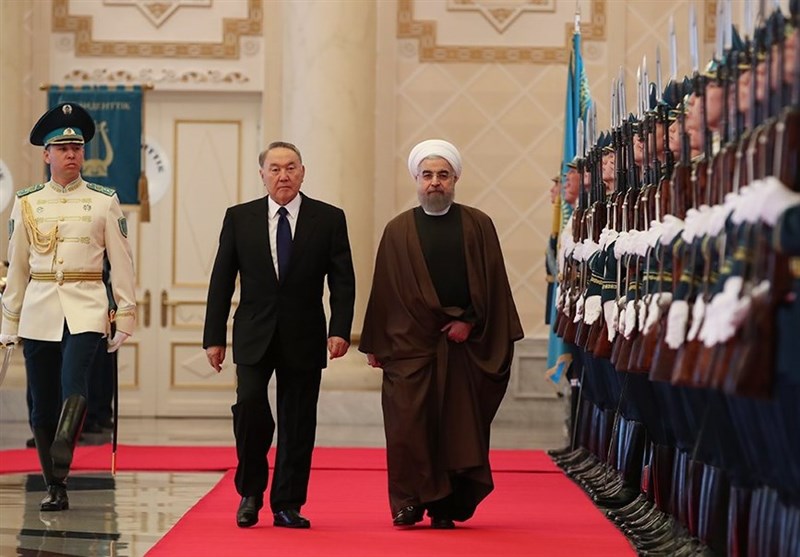
Last week, Iranian President Hassan Rouhani visited Armenia, Kazakhstan and Kyrgyzstan together with senior representatives. Iran’s high level visits aimed at signing Memoranda of Understanding, strengthening mutual relations and discussing regional issues. President Rouhani stated that “Armenia, Kazakhstan and Kyrgyzstan are Iran's corridors to the West, East and North. In the context of the Southern Corridor of China-led One Belt One Road initiative, Iran’s attention towards Central Asia is increasing since the transportation and energy corridors of the project pass through Central Asian countries, Iran and Turkey. In furtherance of this point, Iranian Deputy Foreign Minister Ebrahim Rahimpour put emphasis on the importance of Central Asian countries for Iran stating that "Bolstering ties with friendly countries in Central Asia tops Iran's foreign policy," during his visit to Bishkek.[1] For example, in May 2016, a new railway route passing through China-Kazakhstan-Turkmenistan-Iran was successfully tested. This new route is worth to focus on since it reduces the time from 45-50 days down to 14 days to deliver a product from China to Iran. The westward direction of the transportation corridor would have to pass through Turkey and reach the European markets.[2] Iran is the shortest and less complex route for Central Asian countries to reach European markets over Turkey; Central Asia is the shortest direction for Iran to establish connections with China. Besides east-west routes, north-south corridors are also on the agenda of the countries in the region. For instance, an initiative called North-South Transportation Corridor constitutes the northern links of the transportation corridors.
Armenia and Iran have already been developing good ties, particularly on energy and transportation fields.[3] Although Armenia is highly dependent on Russian energy resources and investments, a limited amount of natural gas flowing from Iran to Armenia make both countries important trade partners for each other. In addition to bilateral relations, Iran’s projects to reach its northern neighborhood, particularly to the Black Sea via Georgia, add another dimension to Iran-Armenia relations. During President Rouhani’s visit, talks between leaders of two countries focused on mutual cooperation on different areas and the two leaders issued a joint statement. Iranian president touched upon the main areas of discussions and agreements at the speech he made at his visit to Armenia. He stated that both countries will strengthen relations in many fields such as; energy, Persian Gulf-Black Sea transportation corridor, business relations and investments, banking and terrorism.[4]
Kazakhstan and Iran have been enjoying good economic ties in the last years. Both countries are important for each other especially for regional transportation and energy projects. During President Rouhani’s visit, both countries signed agreements to facilitate transportation from Iran’s southern ports to Kazakhstan and other Central Asian countries; and eventually to Russia and China via Kazakhstan’s territories.[5] Furthermore, leaders of both countries signed agreements to cooperate in the future in the areas of tourism, banking and transportation.[6]
Transportation was one of the top agenda items at the talks between Iranian and Kyrgyz leaders. The two countries signed agreements covering social matters and a program on cooperation for 2016-2026. Preparation of a long-term program and a common understanding on developing regional projects, signal Kyrgyzstan’s role not only as a corridor to connect east-west corridors with China, but also Iran’s interest to develop good ties with this Central Asian country. China-Kyrgyzstan-Uzbekistan-Turkmenistan-Iran railroad and Shanghai Cooperation Organization were also discussed. Underlining the importance of the railway project, Kyrgyz President Atambayev stated that “…It will be one of the main issues during my upcoming visits to Uzbekistan and China”.[7]
Considering the fact that both Kazakhstan and Kyrgyzstan are members of Shanghai Cooperation Organization, Iran is likely to seek for further support more actively for its membership to the organization. Iran has openly declared its interest to join SCO, however, it wasn’t actualized due to sanctions. In the post-nuclear deal era, Iran has repeated its interest, and both China and Russia, along with other members, has supported Iran’s membership prospects. Ultimately, SCO might provide a platform for Iran to increase its economic role in the region and help both Iran and China, as well as Russia and Central Asian countries, to strengthen ties.
Moreover, Armenia, Kazakhstan and Kyrgyzstan are members of Russia-led Eurasia Economic Union. During his visit to Kyrgyzstan, President Rouhani said: “Since Kyrgyzstan is a member of the EAEU, relations with Kyrgyzstan and the whole EAEU can affect our economic ties, and we hope that the union will take proper decisions in this regard during its meeting on December 26,”[8] and openly declared his interest in strengthening ties with EEU.
As Iran is seeking for new markets and partners in the post-nuclear era, its relations with the eastern-initiated initiatives and institutions are getting stronger. Iran signed agreements with the Western countries such as France and Italy on specific sectors, however, Iran is developing ties with the eastern countries and institutions as well on structural bases. Although the process towards joining SCO and strengthening ties with EEU is subject to legal regulations and agreements, it is still on the table. It will take some time to fulfill the requirements. Yet, taking into account Iran’s role to connect Asia-Europe, further steps to support regional projects should be taken by all parties.
Photo: Tasnim News Agency
[1] Fars News, Iran Calls for Boosting Economic Relations with Kazakhstan, 21.12.2016, http://en.farsnews.com/newstext.aspx?nn=13951001001179 (Access date: 23.12.2016)
[2] For more information please see: Öğütcü, Ö. “Iran, Kazakhstan, Turkmenistan And China: Regional Connectivity”, 09.05.2016, Http://Avim.Org.Tr/En/Yorum/Iran-Kazakhstan-Turkmenıstan-And-Chına-Regıonal-Connectıvıty (Access Date: 23.12.2016).
[3] For more information please see: Öğütcü, Ö. “High Level Talks Between Armenia and Iran”, 21.06.2016, http://avim.org.tr/en/Yorum/HIGH-LEVEL-TALKS-BETWEEN-ARMENIA-AND-IRAN (Access date: 23.12.2016)
[4] Presidency of Armenia, “Presidents Of Armenıa and Iran Recapped The Results of the Meeting”, 21.12.2016, http://www.president.am/en/press-release/item/2016/12/21/President-Serzh-Sargsyan-Iran-President-Hassan-Rouain-announcements-for-Mass-Media/ (Access date: 23.12.2016)
[5] Press TV, “Iran, Kazakhstan seal key transportation deal”, 22.12.2016, http://www.presstv.ir/Detail/2016/12/22/501982/Iran-Kazakhstan-seal-key-transportation-deal (23.12.2016)
[6] ibid
[7] The Times of Central Asia, “Kyrgyzstan and Iran sign cooperation program for 10 years”, 23.12.2016, http://www.timesca.com/index.php/news/17481-kyrgyzstan-and-iran-sign-cooperation-program-for-10-years (Access date: 25.12.2016)
[8] Press TV, “Iran seeks closer ties with Eurasian states: President”, 23.12.2016, http://www.presstv.ir/Detail/2016/12/23/503118/Iran-Kyrgyzstan-rouhani-president-EAEU (Access date: 26.12.2016)
© 2009-2025 Center for Eurasian Studies (AVİM) All Rights Reserved
No comments yet.
-
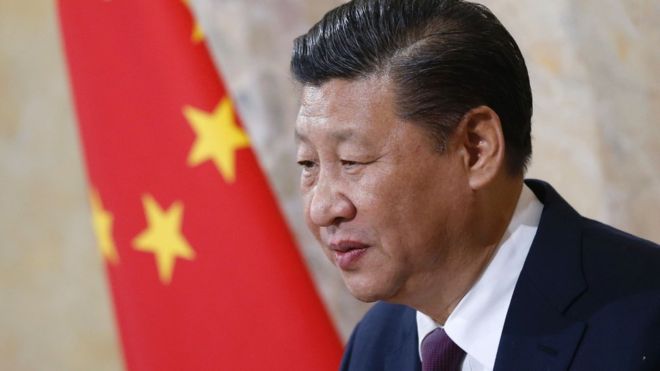 CHINA: THE EMERGING GLOBAL LEADER
CHINA: THE EMERGING GLOBAL LEADER
Özge Nur ÖĞÜTCÜ 02.02.2017 -
IRAN SEEKING NEW MARKETS IN THE SOUTH CAUCASUS: GEORGIA
Özge Nur ÖĞÜTCÜ 25.02.2016 -
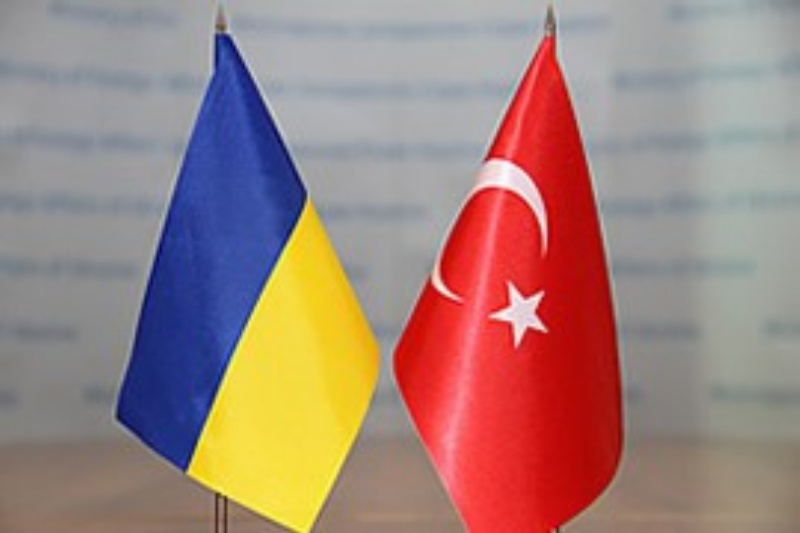 TURKEY-UKRAINE RELATIONS IN THE 25TH ANNIVERSARY
TURKEY-UKRAINE RELATIONS IN THE 25TH ANNIVERSARY
Özge Nur ÖĞÜTCÜ 08.06.2017 -
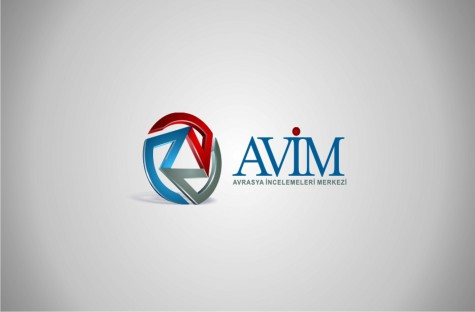 RUSSIA AND THE WEST: ASSESMENT OF THE CURRENT DEVELOPMENTS
RUSSIA AND THE WEST: ASSESMENT OF THE CURRENT DEVELOPMENTS
Özge Nur ÖĞÜTCÜ 14.10.2014 -
 THE NOTION OF “WESTERN BALKANS”, THE BALKANS, AND TURKEY
THE NOTION OF “WESTERN BALKANS”, THE BALKANS, AND TURKEY
Özge Nur ÖĞÜTCÜ 13.07.2017
-
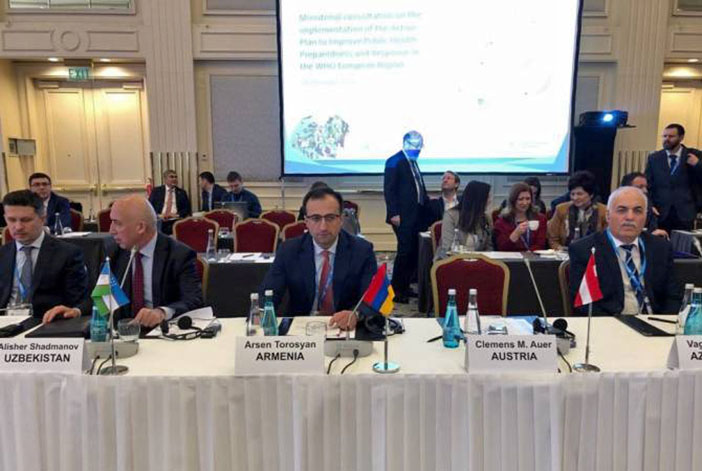 ATTEMPTS AT DIASPORIZING TURKISH ARMENIANS – III
ATTEMPTS AT DIASPORIZING TURKISH ARMENIANS – III
Mehmet Oğuzhan TULUN 07.05.2019 -
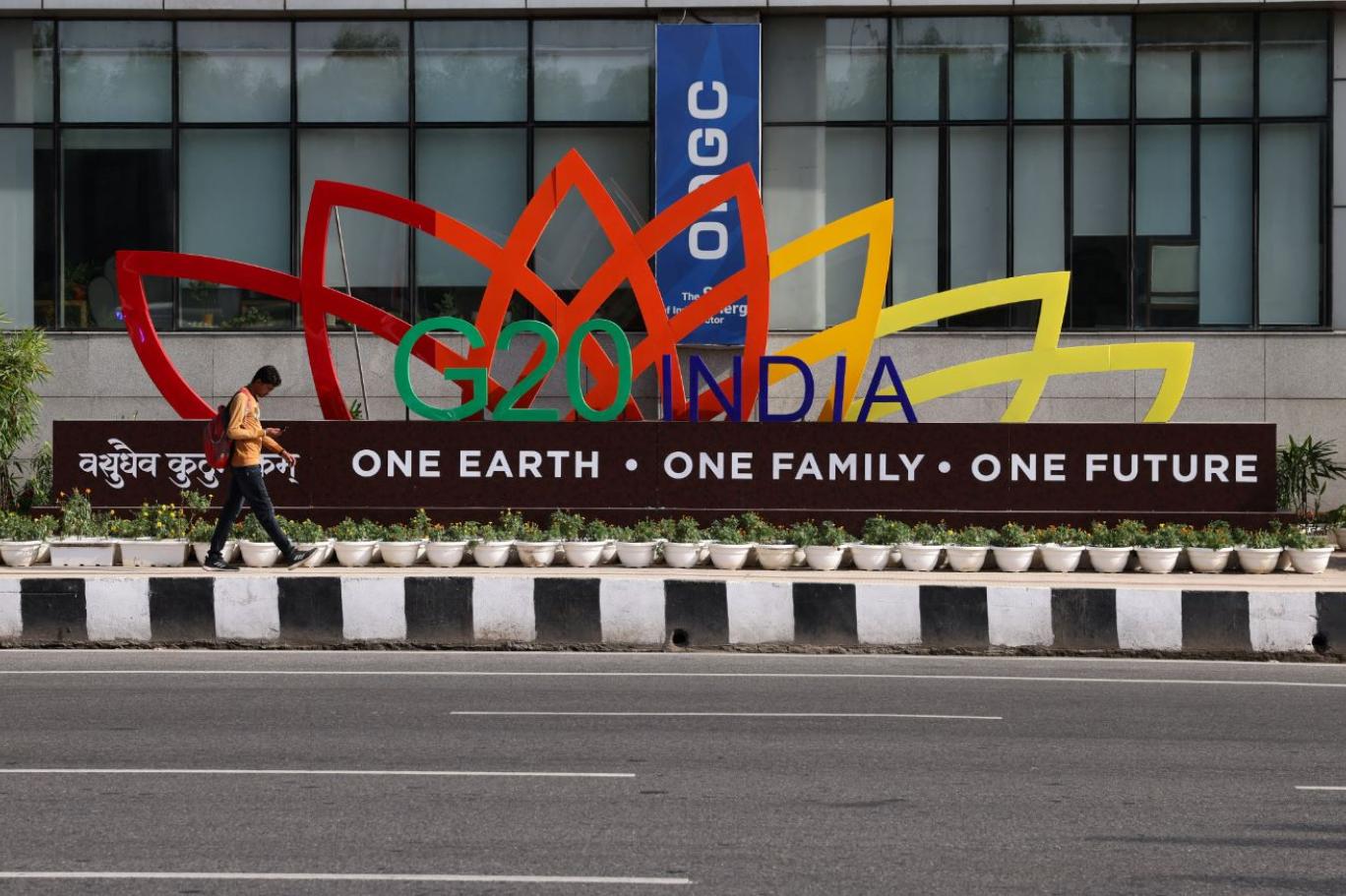 WHY SHOULD THE G-20 NOT ABOLISH ITSELF?
WHY SHOULD THE G-20 NOT ABOLISH ITSELF?
Hazel ÇAĞAN ELBİR 25.09.2023 -
REACTIONS TOWARD ERDOĞAN’S MESSAGE
Ömer Engin LÜTEM 28.04.2014 -
 CONSTRUCTIVE EURASIANISM: REVISITING DEFINITIONS
CONSTRUCTIVE EURASIANISM: REVISITING DEFINITIONS
Teoman Ertuğrul TULUN 08.01.2025 -
THE IMAGE OF ISLAM IN THE WEST AND THE CONFERENCE IN ISTANBUL: “RETHINKING VIOLENT EXTREMISM IN THE MENA REGION”
Hazel ÇAĞAN ELBİR 20.04.2016
-
25.01.2016
THE ARMENIAN QUESTION - BASIC KNOWLEDGE AND DOCUMENTATION -
12.06.2024
THE TRUTH WILL OUT -
27.03.2023
RADİKAL ERMENİ UNSURLARCA GERÇEKLEŞTİRİLEN MEZALİMLER VE VANDALİZM -
17.03.2023
PATRIOTISM PERVERTED -
23.02.2023
MEN ARE LIKE THAT -
03.02.2023
BAKÜ-TİFLİS-CEYHAN BORU HATTININ YAŞANAN TARİHİ -
16.12.2022
INTERNATIONAL SCHOLARS ON THE EVENTS OF 1915 -
07.12.2022
FAKE PHOTOS AND THE ARMENIAN PROPAGANDA -
07.12.2022
ERMENİ PROPAGANDASI VE SAHTE RESİMLER -
01.01.2022
A Letter From Japan - Strategically Mum: The Silence of the Armenians -
01.01.2022
Japonya'dan Bir Mektup - Stratejik Suskunluk: Ermenilerin Sessizliği -
03.06.2020
Anastas Mikoyan: Confessions of an Armenian Bolshevik -
08.04.2020
Sovyet Sonrası Ukrayna’da Devlet, Toplum ve Siyaset - Değişen Dinamikler, Dönüşen Kimlikler -
12.06.2018
Ermeni Sorunuyla İlgili İngiliz Belgeleri (1912-1923) - British Documents on Armenian Question (1912-1923) -
02.12.2016
Turkish-Russian Academics: A Historical Study on the Caucasus -
01.07.2016
Gürcistan'daki Müslüman Topluluklar: Azınlık Hakları, Kimlik, Siyaset -
10.03.2016
Armenian Diaspora: Diaspora, State and the Imagination of the Republic of Armenia -
24.01.2016
ERMENİ SORUNU - TEMEL BİLGİ VE BELGELER (2. BASKI)
-
AVİM Conference Hall 24.01.2023
CONFERENCE TITLED “HUNGARY’S PERSPECTIVES ON THE TURKIC WORLD"









